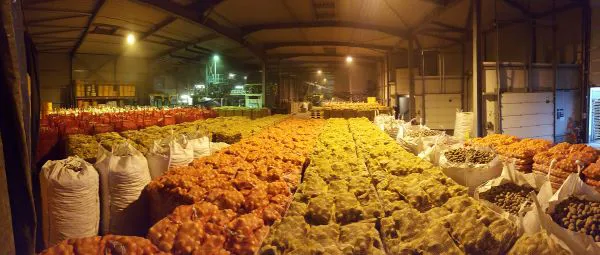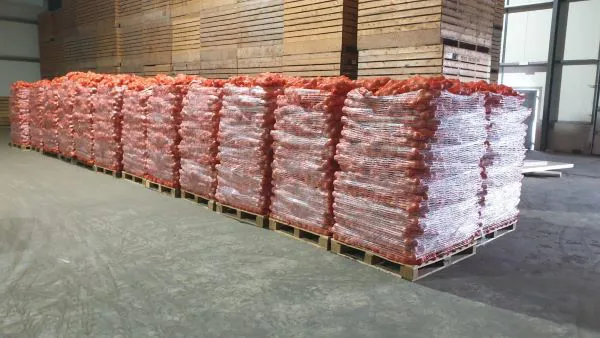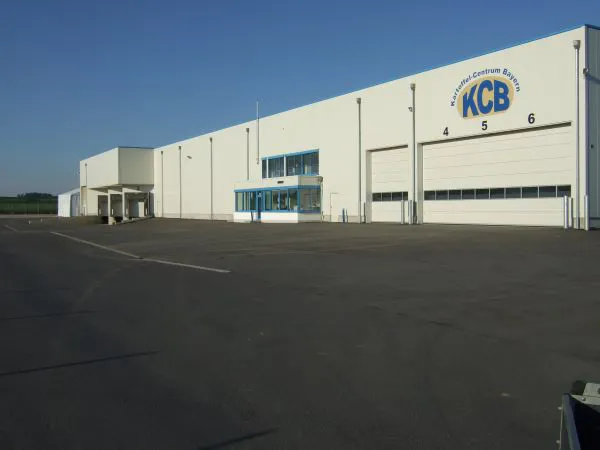The harvest volume of onions in Bavaria this year is average to below average, Richard Grob, authorised signatory at Kartoffel-Centrum Bayern GmbH, tells us when asked. "You can see a clear balancing act between unirrigated and irrigated areas. Legislation does not make irrigation any easier in certain regions where onions are grown. The course of the year was characterised by a very wet spring and an early summer drought, which often coincided with the main growth phase. In addition, there was again abundant rainfall or extreme weather events in the summer. This was not exactly ideal, as the wetness means that rot bacteria etc. are inevitable."

Bavarian onion cultivation is characterised by motivation due to the record prices that were achieved in 2022. "However, in established regions such as Lower Bavaria, where onion cultivation has been a tradition for decades, Fusarium in particular is currently on the rise. This can lead to entire harvests being destroyed. So far, there is no remedy for this, not even in conventional cultivation. There is a noticeable shift to new regions where onions have not been grown for so long. At the moment, however, the situation is still balanced," says Grob.
He also describes the quality of the onions as 'not optimal'. "There is rot in almost every batch, ranging from the low single-digit to the double-digit range. Added to this are the demands of the buyers, who either purchase or reject the goods with virtually zero tolerance. The size of the onions can certainly be described as too small; there is a lack of excess. The very small calibres are no longer desired by consumers. All in all, this has led to a very high producer price level."

70 per cent of Kartoffel-Centrum Bayern GmbH's onions are exported, primarily to countries in Southern and Eastern Europe. "Demand in the southern countries is very good, while eastern Europe is still hesitant. This is certainly also due to the high prices and the traditional increase in demand as soon as the frost arrives. The price already started very high in the summer and has held up or risen slightly for the good lots. However, supply is currently more than sufficient due to various storage problems. Developments will continue to be exciting in 2024," says Grob. The company receives its onions from 30 to 40 growers in the region. "At the Geiselhöring site, onions play a key role, accounting for around a fifth of the volume sold."
"We pack onions primarily for other European countries, mostly in combination with table potatoes, especially in the 4 to 10 kg range. We also sell the classic 25 kg bags for the wholesale market. For onions, we still work in the traditional way with sorting staff. We are only at the beginning of optical technology here, which has long been the norm for potatoes. But we are also keeping a close eye on technical developments, as there is still a lot to come in the next few years," concludes Grob.

For more information:  Richard Grob
Richard Grob
Kartoffel-Centrum Bayern GmbH
Mittelstetter Str. 42
D- 86641 Rain am Lech
Telefon: +49 9090 / 9604 – 0
E-Mail: [email protected]
Webseite: https://www.kartoffel-centrum-bayern.de










